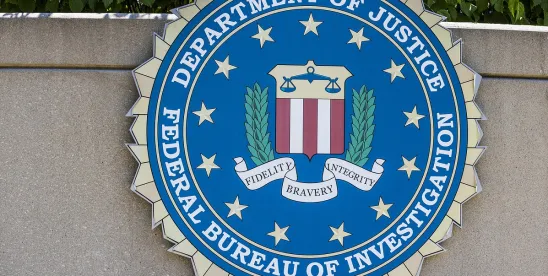A recent civil complaint from the U.S. Department of Justice (DOJ) highlights the importance of carefully planning interim operating covenants in M&A deals and structuring the process to prevent buyers from gaining control of targets too soon—before the mandatory waiting period under the Hart-Scott-Rodino Act (HSR Act) is up. This is commonly referred to as “gun-jumping.”
On January 7, 2025, the DOJ filed a complaint for civil penalties and equitable relief for violations of the HSR Act against Verdun Oil Company II LLC (Verdun), XCL Resources Holdings, LLC (XCL), and EP Energy LLC (EP Energy) for gun-jumping in Verdun’s and XCL’s $1.4 billion acquisition of EP Energy, a crude oil production company operating in Utah and Texas. The DOJ alleges that between the execution of the transaction’s purchase agreement in July 2021 and October 2021, when the purchase agreement was amended to restore EP Energy’s operational independence, EP Energy allowed Verdun and XCL, Verdun’s sister company, (i) to exert premature operational and decision-making control over significant aspects of EP Energy’s day-to-day business, (ii) to assume financial risks within EP Energy’s business, (iii) to obtain competitively sensitive information, (iv) to engage directly with customers and vendors in contract negotiations, and (v) to coordinate anti-competitive pricing and supply chain disruptions, all prior to the expiration of the waiting period obligations under the HSR Act.
Even though EP Energy, Verdun, and XCL filed the required pre-merger HSR filings with the Federal Trade Commission and the DOJ, the complaint alleges that the purchase agreement granted the buyers too much control during the waiting period because of consent rights that placed key aspects of EP Energy’s business under their control. The purchase agreement also allegedly required buyers’ express approval to conduct development operations, which prevented EP Energy from continuing its oil well-development activities and production plans, and to hire field-level employees and contractors necessary for drilling and production in its ordinary-course operations. The purchase agreement also allegedly made the buyers responsible for any financial risk and liabilities tied to the restrictions, further suggesting they were gaining effective control over the company.
In addition, XCL and Verdun allegedly took an active “boots on the ground” approach to taking over EP Energy’s operations prior to the closing of the transaction and the expiration of the HSR waiting period, allegedly coordinating with EP Energy on customer contracts, relationships, and deliveries, in addition to coordinating on pricing terms offered to customers. In assuming the operational control of EP Energy, the buyers were allegedly granted access to confidential and competitively sensitive information to include details on customer contracts, pricing, production volumes, and vendor contracts.
As a result of these allegations, XCL, Verdun, and EP Energy are facing civil fines in excess of $5.6 million.
When structuring a deal, it’s important to account for the HSR clearance timeline and closely monitor the activities between the buyer and the target. All parties involved need to know what’s okay to do before the deal closes, especially when it comes to making decisions and taking control of operations. For example, deal teams should avoid having buyers negotiate on behalf of the target with customers or vendors, and be very careful with handling sensitive competitive information to prevent anti-competitive concerns. That info should be shared carefully, using “clean team” safeguards or data rooms to keep it under control.
While these tips are general best practices for any transaction, deal teams should address and tailor HSR, anti-competition, and purchase agreement interim operating covenant considerations on a deal-by-deal and client-by-client basis.
Tiernan Still also contributed to this article.
Resources:
- U.S. Department of Justice, Press Release, Oil Companies to Pay Record Civil Penalty for Violating Antitrust Pre-Transaction Notification Requirements (Jan. 7, 2025), https://www.justice.gov/archives/opa/pr/oil-companies-pay-record-civil-penalty-violating-antitrust-pre-transaction-notification.
- United States v. XCL Resources Holdings, LLC, No. 25-cv-00041 (D.D.C. Jan. 7, 2025).



 />i
/>i
